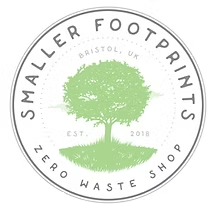Updated: Oct 15, 2018
“I, Pencil”, a 1950’s essay by Leonard Read, highlights the extraordinary number of organisations and people involved in the process of making something so seemingly simple as a pencil.
It partly explains why we’re rarely offered the opportunity to understand where the things we buy have come from, and who’s had a hand in getting them to us. Only “partly”, because the way large organisations most often market things to us via fame, rather than telling us anything meaningful about the product, doesn’t help.
That said, we don’t necessarily need to know precisely where everything has come from and exactly how it came to find us. Time is short, and so long as we’re confident that goods have been produced ethically, that may do.
We have been very lucky in that we’ve been able to partly furnish Smaller Footprints with wood from our friends’ garden in Oxfordshire. We send a HUGE thank you to John and Claudine for, not only the Ash, but their talents, time and energy. The wood had been drying for two years (making it ‘seasoned timber’, I’m told) and was previously designated for furniture within their own home.
John and I spend all of a recent Sunday flattening, squaring, joining and sanding. It wasn’t particularly efficient, and helped me understand why the production of a pencil – and most things – may be best achieved by a variety of specialists (the lead, the wood, the rubber, the logistics). Is any one person / organisation able to produce and deliver a whole pencil? The extent to which collaboration is required in the world can hardly be repeated too often, but it did feel good to break that mould for a moment and to produce something independently.
To stress the kindness of John and Claudine… they are not currently able to live in their own (beautiful) home as it requires some major works. Works they are undertaking themselves because they are superheroes who aren’t daunted by anything. That they took the time from their own challenges to help us in this way will not be forgotten. I hope the Ash has found a worthy home and thank you again, John and Claudine – you are amazing x
Many of the stages didn’t get photographed but here are a few that did…
Drying:
Selecting:
Cutting:
Flattening:
Squaring:
Pondering:
Joining:
Slacking:
The twilight shift (getting “dimpsey” where I come from):
Sanding:
Collecting dust (unlike the final product, which will be put to very good use):
Waning:
Relieved success:
A well-earned rest:
Certainly not the most energy efficient way to create shelves, a huge factory that could pump out 100 a minute may in some ways be more preferable and we shouldn’t assume that local is always best, but it was very rewarding to know exactly where these (now) shelves had come from and to be able to produce them ourselves.
Smaller Footprints will endeavour to understand and be able to relay to its community the provenance of the products it sells. Where possible, and where it makes sense environmentally to do so, we will be supplied from local sources.



